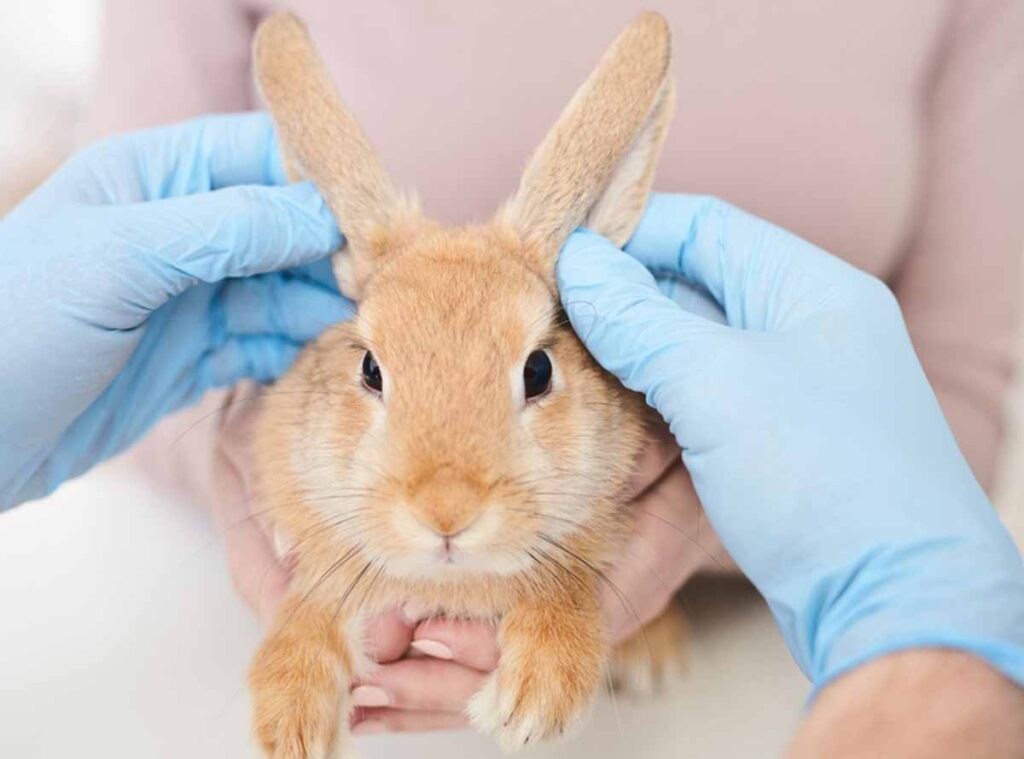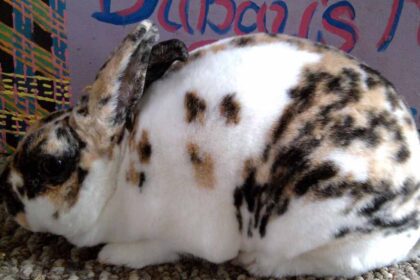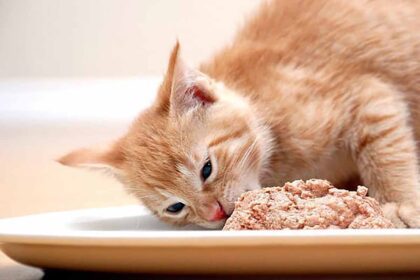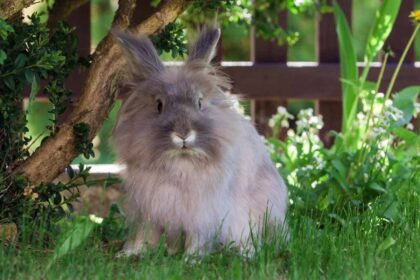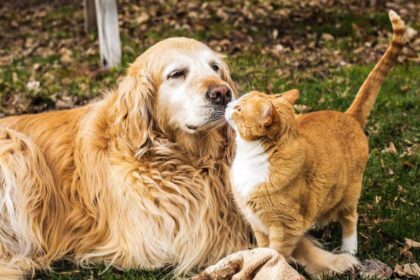Entering the world of caring for rabbits feels like a magical journey. Each hop and nose twitch brings a touch of wonder to our lives. But in this magical place, our furry friends can get sick too. Just like you and I, they too can encounter their fair share of ailments along the way.
Before you start to worry, let’s explore the typical health issues that rabbits face. Let’s do it together. Furry friends face dental issues, parasites, and other challenges needing attention. Fear not, dear reader. With our knowledge, we can handle these challenges with grace and care.
1. Rabbit Haemorrhagic Disease Virus (RHDV)
Cause and Basic Symptoms
RHDV, also known as Rabbit Calicivirus, is a highly contagious viral infection that attacks the liver and other organs. Symptoms may include sudden death, fever, lethargy, and seizures.
Prevention
Vaccination is key in preventing RHDV. Additionally, practising good hygiene and minimising contact with wild rabbits can help reduce the risk.
Treatment
Unfortunately, there is no cure for RHDV. Supportive care, including fluid therapy and temperature regulation, may be provided to affected rabbits.
2. Dental Disease
Cause and Basic Symptoms
Dental disease in rabbits often stems from overgrown teeth, which can lead to difficulty eating, drooling, and weight loss.
Prevention
Providing many opportunities for chewing, such as hay and safe chew toys, can help prevent dental issues. Regular veterinary check-ups are also essential.
Treatment
Treatment may involve tooth trimming under anesthesia and addressing any underlying causes, such as malocclusion or infection.
3. Gastrointestinal Stasis
Cause and Basic Symptoms
Gastrointestinal stasis, or GI stasis, occurs when the digestive system slows down or stops functioning properly. Symptoms may include decreased appetite, bloating, and reduced fecal output.
Prevention
A high-fiber diet, plenty of exercise, and maintaining a stress-free environment can help prevent GI stasis.
Treatment
Treatment often involves supportive care, including hydration therapy, pain management, and encouraging movement to stimulate digestion.
4. Myxomatosis
Cause and Basic Symptoms
Myxomatosis is a viral disease spread by biting insects, such as fleas and mosquitoes. Symptoms may include swelling around the eyes, ears, and genitals, as well as fever and lethargy.
Prevention
Vaccination is the most effective way to prevent myxomatosis. Additionally, minimizing exposure to insects and practicing good parasite control can help reduce the risk.
Treatment
Treatment is primarily supportive, focusing on relieving symptoms and preventing secondary infections.
5. Respiratory Tract Infection
- Cause and Basic Symptoms: Respiratory tract infections in rabbits can be caused by bacteria, viruses, or environmental factors. Symptoms may include sneezing, nasal discharge, and labored breathing.
- Prevention: Maintaining a clean living environment, avoiding exposure to cigarette smoke and other respiratory irritants, and providing proper ventilation can help prevent respiratory infections.
- Treatment: Treatment may involve antibiotics, supportive care, and environmental modifications to improve air quality.
6. Parasites
- Cause and Basic Symptoms: Parasites such as mites, fleas, and ticks can infest rabbits, causing itching, hair loss, and skin irritation.
- Prevention: Regular grooming, parasite prevention products recommended by a veterinarian, and maintaining a clean living environment can help prevent parasitic infestations.
- Treatment: Treatment may involve topical or oral medications to eliminate parasites, along with addressing any underlying skin issues.
7. Uterine Cancer
- Cause and Basic Symptoms: Uterine cancer is common in unspayed female rabbits and can cause symptoms such as vaginal discharge, lethargy, and abdominal swelling.
- Prevention: Spaying female rabbits at a young age significantly reduces the risk of uterine cancer.
- Treatment: Treatment usually involves surgical removal of the cancerous uterus (spaying) and may also include chemotherapy or other supportive measures.
8. Hairballs
- Cause and Basic Symptoms: Hairballs, or trichobezoars, can form in the rabbit’s digestive tract due to excessive grooming and ingesting fur. Symptoms may include decreased appetite, lethargy, and gastrointestinal distress.
- Prevention: Providing plenty of fiber in the diet, regular grooming to minimize ingested fur, and encouraging exercise can help prevent hairball formation.
- Treatment: Treatment may involve supportive care, such as hairball medications or a high-fiber diet, to help the hairball pass through the digestive tract.
9. Heatstroke
- Cause and Basic Symptoms: Rabbits are highly susceptible to heatstroke due to their thick fur and inability to sweat. Symptoms may include rapid breathing, drooling, and weakness.
- Prevention: Keeping rabbits in a cool, shaded environment, providing plenty of fresh water, and avoiding handling during hot weather can help prevent heatstroke.
- Treatment: Treatment involves cooling the rabbit down gradually, providing hydration, and seeking veterinary care promptly.
By knowing and taking action, we can keep our furry friends healthy and happy with us. Let’s travel together holding hands, as we learn about rabbit health with love and care.
Did you know that rabbits have a unique digestive system called hindgut fermentation, where fiber is fermented in the cecum to extract nutrients? This makes a high-fiber diet crucial for their overall health.
Varga, M. (2013). Textbook of rabbit medicine.
Harcourt-Brown, F. (2002). Textbook of rabbit medicine. Oxford: Butterworth-Heinemann.
FAQ
Q: How often should I take my rabbit to the vet for check-ups?
A: It’s recommended to take your rabbit to the vet for annual wellness exams. Rabbits with existing health problems or signs of illness need to see a vet right away.
Q: My rabbit has stopped eating, what should I do?
A: sudden loss of appetite in rabbits may mean a big health problem like tummy trouble. Seek vet care right away if your rabbit stops eating. Rabbits can get sick quickly without food.
Q: Can I prevent my rabbit from getting dental disease?
A: While dental disease can be genetic. A high-fiber diet helps prevent issues. Chew hay, toys, and have regular vet check-ups for rabbits.
Q: How can I protect my rabbit from parasites?
A: Regularly brushing and using vet-recommended products can keep rabbits free from parasites. Keep their living area clean too.
Q: Is there a way to prevent heat stroke in rabbits?
A: Yes, prevent heat stroke in rabbits by keeping them cool and shaded. Also, provide plenty of water and avoid handling in hot weather. Use frozen water bottles or ceramic tiles for them to lay on.
Q: Should I spay or neuter my rabbit?
A: Spaying or neutering rabbits is recommended. It prevents health issues like cancer and aggression.
Q: What vaccinations does my rabbit need?
A: Core rabbit vaccinations include RHDV and Myxomatosis to protect against diseases. Vaccine suggestions may change by where you are and your own risks, so check with a vet.
Q: Can I give my rabbit over-the-counter medications?
A: Before giving any medicines to your rabbit, always talk to a vet first. Some human drugs could harm rabbits, so always ask a vet before giving medication. Rabbits need different doses and treatments than other pets.
Q: How can I tell if my rabbit is in pain?
A: Rabbits are good at hiding pain. Signs like eating less, sitting oddly, grinding teeth, or not moving could mean they hurt. If you suspect your rabbit is in pain, it’s crucial to seek veterinary care promptly.
Q: What should I do if my rabbit has a hairball?
A: If your rabbit shows signs of a hairball like eating less or stomach problems, you should ask a vet for help. Your vet might suggest providing care like hairball medicine or a high-fiber diet. These can assist the hairball in moving safely through the digestive system.


